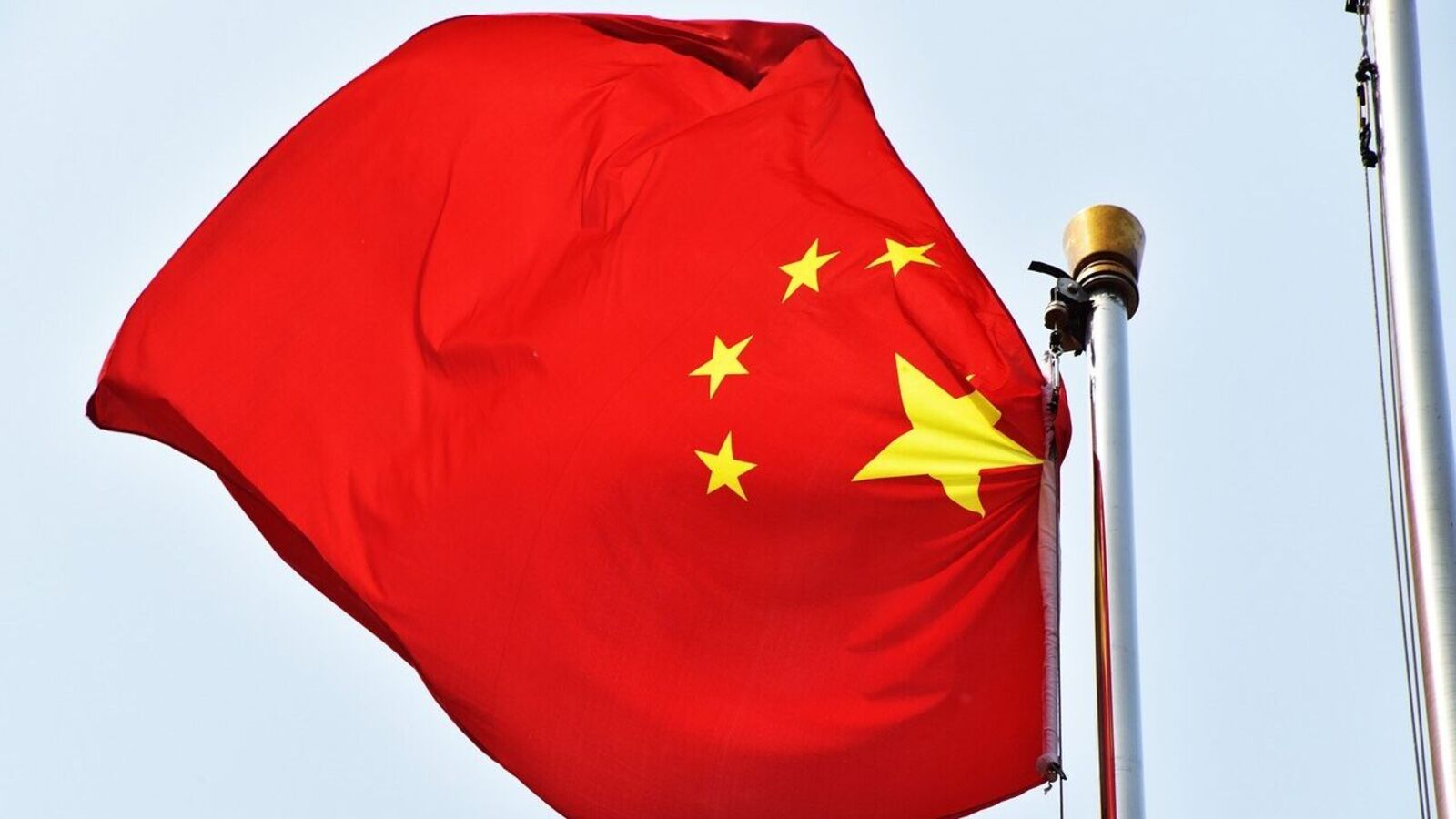That view jars with the impression conveyed by another, far more conspicuous, trend: the rise of Chinese nationalism. In public forums online, it is usually hard to find liberal views. The internet is filled with the voices of West-hating cheerleaders for the regime who pounce on the few who dare to challenge them. The nationalists enjoy a wide-open field thanks to Mr Xi’s relentless efforts to silence liberals. In contrast with the 1980s, the intellectual landscape of China can seem drearily homogenous, sucked of vitality by a party re-energised and strengthened by Mr Xi.
Yet liberalism is surprisingly resilient. In subtle ways, as Mr Liu believes, it may even be drawing more adherents. This is not to say that active dissent is spreading. Far from it. Mr Xi’s clampdown has made it all but impossible for anyone who persistently and openly criticises China’s political system to remain free. With the help of high-tech surveillance and a massive domestic-security apparatus, the party appears in firm control. It is hard to imagine another Tiananmen.
But liberals are not necessarily dissidents (nor are they necessarily left-leaning, as the label is often taken to mean). They may even support the party, seeing its collapse as a recipe for chaos. They are people who want more personal and economic freedom. They are supporters of individual rights, even when these clash with the government’s wishes. They admire the values that Western democracies say they uphold, even if they see faults in the way the West works. Though not synonymous with dissent, liberalism can be a wellspring of it.
Its influence explains why Mr Xi focuses so much on fighting it. On August 31st, as a new academic year got under way, the Communist Party’s main theoretical journal, Qiushi, republished a speech given by Mr Xi in 2018. In it he warned of persistent efforts by the West, targeting young people, to foment a “colour revolution” in China. “The fight over young people is a long and severe battle,” said Mr Xi. “We cannot afford to lose, and we must not lose. We must stay vigilant!”
Studies by scholars abroad provide some insights. The opinions of Chinese citizens are “more diverse and liberal than one might expect”, wrote Scott Kennedy and Ilaria Mazzocco of the Washington-based Centre for Strategic and International Studies in 2022, citing data collected over several years by Jennifer Pan and Yiqing Xu of Stanford University. “There are plenty of nationalists, but there is also a silent majority in favour of economic reform and political liberalism.” In a review last year of such research, Sungmin Cho, then at the Asia Pacific Centre of Security Studies in Hawaii, said that while the majority of Chinese citizens welcomed the stability provided by party rule, “their support of democratic norms and values has also increased over time”.
Some researchers are less sure. In “China as Number One: The Emerging Values of a Rising Power”, a multi-author work published this year, John James Kennedy of the University of Kansas wrote that a poll in 2018—the latest in a series by an international project called the World Values Survey—suggested a “more conservative trend” had emerged in Chinese views on issues such as gay rights, gender equality and respect for authority.
Much has changed, however, since 2018. In the first two years of the pandemic, the party clearly enjoyed a surge of support as China successfully contained the spread of covid-19, while Western countries floundered. China’s propagandists made hay of this, heaping scorn on the weakness of Western democracy. Many Chinese appeared to agree with the government’s spin. But in 2022 the mood appeared to shift. Mr Xi’s determination to pursue his zero-covid strategy, despite the difficulty of containing the Omicron variant of the virus that swept the world that year, stirred anger among the millions of people who were forced to stay at home for days or weeks on end.
For the first time since Mr Xi came to power a decade earlier, multi-city protests erupted. The demonstrations that November were small, but brave. Participants demanded an end to the lockdowns and also aired political grievances. They criticised censorship, holding up blank sheets of paper to make their point. Some called for the overthrow of Mr Xi and the party. If only briefly, the liberal wellspring gushed.
The “white-paper movement”, as the protests came to be dubbed, revealed that Mr Xi was not wrong to worry about dissent. In the following weeks, police swung into action, tracking down those involved, warning many and detaining dozens.
In this climate of fear, few liberals would dare to speak out. But conversations with young urban Chinese in several parts of China suggest that the white-paper movement was a big moment for liberals, and the country’s sudden, chaotic exit from zero-covid—thought to have resulted in more than 1m deaths, mainly of elderly people—was a wake-up call for some supporters of Mr Xi’s brand of authoritarianism. Cynicism about the way China is run appears more widespread. That does not mean many now want an immediate end to one-party rule. But gloominess is palpable. It is being compounded by the economy’s lacklustre performance.
In Beijing, Mr Liu’s bookshop is a rarity. Perhaps the authorities reckon that to close it would anger many and achieve little. The works of Isaiah Berlin, Friedrich Hayek and Ludwig von Mises (among Mr Liu’s bestsellers) can be found online and in libraries, after all. But look at the flow of young people to less oppressive cities in China, or abroad, and you can detect a liberal yearning. “I think the covid restrictions triggered a lot of Chinese people to have that kind of thought: to emigrate to other countries,” says Zhang Jinping (a pseudonym), who recently completed a master’s degree in Beijing. “We can see the leadership is not listening to its people.”
Digging for the truth
For Ms Zhang the turning-point came in 2019, when pro-democracy protests engulfed Hong Kong. On the mainland, nationalist fury erupted against the demonstrators. The party portrayed them as CIA-backed separatists. Many young Chinese bought that line: internet censorship allowed no other to prevail. But Ms Zhang tunnelled through the “great firewall” and found a different story. Her confidence in the government dropped from 100% to 80%, she says. The final months of zero-covid turned her into a far greater sceptic. “I would say Chinese people have learned the hard way how the Chinese leadership is.” Her faith in the party is now “very low”.
The south-western city of Chengdu is a popular destination for young, liberal-minded Chinese who want to get away from the capital’s suffocating politics. It is no nirvana for dissent. Outspoken critics of the party are still targeted by police. But there is a little more freedom—in its cafés and counterculture of underground music; and in a laid-back lifestyle nurtured by a mild, subtropical climate that is a welcome respite from Beijing’s fierce extremes. Here there are several liberal-oriented bookshops. A shelf in one contains multiple copies of two translated works. The first is “The Plague” by Albert Camus, published in 1947. It describes a city ravaged by disease in a way that seemed prescient about the horrors of zero-covid. The other is George Orwell’s “Nineteen Eighty-Four”.
In Chengdu it is easy to join small gatherings known as shalong (derived from “salon”), at which people discuss books and current affairs—though not, as one shalong enthusiast points out, anything specifically related to lao da, or the big boss. (Even in Chengdu, few dare openly to criticise Mr Xi.) Organisers say such events are becoming more common.
At one, about three dozen people, most of them in their 20s or 30s and many unknown to each other, assembled in a brightly lit exhibition space. They had been drawn by an announcement, circulated on WeChat—China’s closely monitored equivalent of WhatsApp—of a debate on the motion “Israel’s war against Hamas has gone beyond the scope of self-defence”. The discussion was calm—a far cry from the stampede in official media and online to portray the violence as a product of American meddling, ignoring Hamas’s atrocities. Neither side was declared the winner. As one organiser stressed, it was a victory for orderly discussion. “Chinese don’t have freedom of speech,” says one participant. “It’s great to have this opportunity to speak.”
Beijing is more stifling, but liberal thinking is common in the capital, too. One striking sign of it is meetings of women, particularly the young and well-educated, to discuss problems related to their sex. Mr Xi has cracked down hard on feminist activism. Officials see it as a front for anti-party dissent. There has been barely any organised campaigning related to women’s issues since 2015 when five high-profile activists were detained just before International Women’s Day. In 2018, in response to the #MeToo movement, Chinese women took to the internet to air their own grievances. But the government has moved to silence them, too. In June a prominent #MeToo activist was sentenced to five years in prison for subversion.
Online and offline, however, women still gather to encourage each other in their struggle against discrimination and abuse. Demand for feminist books shows how interest in this subject is surging. The works of Ueno Chizuko, an honorary professor at the University of Tokyo, are among the most popular. In 2019 she spoke to new students about gender inequality in higher education. She attacked expectations in Japan that girls be kawaii, or cute, and that women hide their academic achievement to avoid being seen by men as a threat.
Amid a campaign by Mr Xi to promote conservative family values, emphasising the role of women as mothers, Ms Ueno’s speech struck a chord among Chinese women. It went viral on social media. A video of it has garnered more than 1m hits. Chinese publishers rushed to bring out translations of Ms Ueno’s books on feminism. More than 20 are now on sale. They have sold hundreds of thousands of copies. “In recent years, feminist ideas have spread rapidly in China and have influenced many young people,” says Jiang Xue, a Chinese journalist who left China in 2022 after harassment by state-security police. “This inevitably includes thoughts about personal rights.”
As for campuses, much research by Chinese academics suggests that free-thinking attitudes remain attractive, at least to some. Of more than 1,400 students who were surveyed in 2019 at four universities in Henan province, more than 40% said they believed that liberalism was influential among students. The researcher, Cao Chong, said such thinking had “undermined the mainstream values of college students and blurred the standards of morality and justice”.
In the 1980s the spread of liberalism at universities was in part encouraged by politics. Reformers in the leadership wanted China to move further away from Maoist totalitarianism by easing the party’s grip on the media and academia. No such reformers are visible today. Mr Xi has silenced them. A journal that had their backing, Yanhuang Chunqiu, was ended in 2016.
Amid soaring unemployment, property-market wobbles and a slowing economy, the police will be on heightened alert for unrest. Two American scholars, Scott Rozelle and Martin Whyte, have analysed data concerning attitudes towards inequality. They found that most people once believed a lack of ability explained why some people were poorer. Now they are more likely to blame the system. But don’t expect them to demonstrate.
Liberals see no end in sight to the clampdown. There is no sign that Mr Xi, who is 71, plans to step down. And whoever emerges as his successor is likely to share his anxiety about the party’s possible collapse, should it relax its ideological grip. In the 1980s it was partly thanks to paralysis in the party, as reformers and hardliners squabbled, that demonstrations were able to grow. It is possible that, post-Xi, the party may experience such rifts again. If so, there could be another gushing of liberal-hued dissent onto the streets. But it could be a long wait.
© 2024, The Economist Newspaper Ltd. All rights reserved. From The Economist, published under licence. The original content can be found on www.economist.com










